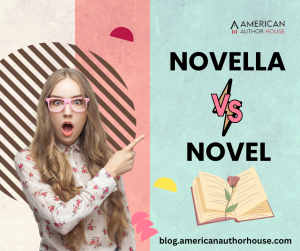
Writing
As a writer, whether you’re a seasoned professional or a budding wordsmith, one thing is certain: proofreading is a vital step in the writing process.
It’s the stage where you meticulously review and refine your work, ensuring that it is free of errors, well-structured, and communicates your message effectively.
In this complete article, we will dive into the world of proofreading tips, offering valuable insights and advice to help you perfect your writing. Additionally, we’ll explore the significance of book editing, as discussed in our article on Book Editing: Elevating Your Writing to New Heights. Additionally, we’ll explore the significance of book editing.
Proofreading Tips: A Step-by-Step Guide
Tip 1: Take a Break and Gain a Fresh Perspective
The first of the proofreading tips is to take a break before the next step. Before editing, step back and get some space from your writing. This break gives your mind a chance to rest so you can return to work with a fresh mind.
By stepping back from the situation, you’ll be able to look at the editing process with fresh eyes, making it easier to find mistakes and places where things could be better.
Tip 2: Read Aloud for Enhanced Clarity
One of the best proofreading tips to check your work for mistakes is to read it out loud. This active involvement with your writing helps you find problems with sentence structure, word choice, and spelling that you might have missed during a silent read.
As you read your writing out loud, pay attention to how your lines and words sound and how your writing flows. With this method, you can hear details you might have missed if you were reading quietly.
Tip 3: Begin with the Big Picture
Before you start editing, take a step back and look at the structure and flow of your work. So the next proofreading tip is to start by reading your introduction again to ensure it sets the right tone and introduces your major ideas well. Check how you’ve organized your content to ensure your ideas make sense and run together. Address any parts of your text that might not be clear or consistent, and make any changes needed to improve the layout.
Tip 4: Study Grammar and Punctuation
After you’ve looked at the big picture of your writing, it’s time to look at language and punctuation. Check to see if the subject-verb pairs are correct. Ensure to check your use of commas and other punctuation marks to ensure your words are clear and make sense. Look for broken sentences that need to be put back together to make your ideas clear and easy to understand.
Tip 5: Pay attention to the most common mistakes
Some mistakes in writing are very common. One of the basic proofreading tips is to pay close attention to words that sound the same, like “their” and “there,” and words that are often confused, like “affect” and “effect.” Knowing about these common mistakes, you can avoid them and make your writing more accurate and professional.
Tip 6: Validate Facts and Cite Reliable Sources
When writing pieces based on real information, it is important to check that your facts are true and give credit to reliable sources. One basic proofreading tip is to check your numbers and data twice to keep your work’s credibility and dependability. Your points will be stronger, and your audience will feel more connected to you if you use correct, well-supported information.
Tip 7: Enhance Transitions for Seamless Flow
Transitions are important for making paragraphs and ideas run together smoothly. Check your changes carefully to ensure they link your ideas and help your readers understand what you are saying. When you use transitions well, they make your work easier to read and more interesting.
Tip 8: Ensure Consistency in Style and Formatting
Consistency is very important if you want your work to look professional. Ensure your style, tense, and arrangement are the same throughout your work. A consistent style gives your writing an air of professionalism and stability, making it easier for your readers to focus on what you’re saying.
Tip 9: Edit for Crystal Clear Clarity
Good conversation depends on being clear. Edit your writing to make sure your message is short, clear, and easy for the people you want to reach to understand. Avoid unnecessary words or confusing language that might make it hard to understand.
Tip 10: Leverage the Power of Proofreading Tools
In today’s world, proofreading tools are invaluable. For more on these tools and how to use them effectively, check out our article on Audible Alternatives: Top Audiobook Apps for Listening to Books. In the current world, proofreading tools are an important part of the proofreading process. These technological tools can help you find mistakes, improve your language, and write better. Now one essential proofreading tip is to use these tools along with your proofreading to make sure your end product is polished and free of mistakes.
Book Editing: Elevating Your Writing to New Heights
Editing a book is more than just fixing typos; it’s an important part of publishing. Editing a book is more in-depth than proofreading. In addition to typos and clarity, it looks at story structure, character development, and pacing.
American Author House offers top-notch editing services to help writers do well in publishing. To learn more about the services we offer, visit our article on How to Publish a Book on Amazon and Make Money The professional editors at American Author House will clean up your work until it shines, attracting readers and capturing the heart of your story in the process.
Main Stages and Elaborate Information
| Stage | Focus | Details |
|---|---|---|
| Initial Review | Gaining Perspective | Take a break to return with fresh eyes, ensuring a clear and fresh perspective for the editing process. |
| Reading Aloud | Clarity and Flow | Read the text out loud to detect sentence structure, word choice, and spelling issues. |
| Structural Analysis | Organization | Review the introduction, structure, and flow of ideas to ensure coherence and logical progression. |
| Language Check | Grammar and Punctuation | Examine grammar, punctuation, and common errors like homophones and frequently confused words. |
| Fact-checking | Accuracy | Verify facts, figures, and citations to maintain the credibility and reliability of the text. |
| Transitional Review | Flow | Ensure transitions between paragraphs and ideas are smooth and logical to enhance readability. |
| Consistency and Clarity | Style and Precision | Maintain consistent tense and style while editing for conciseness and avoiding ambiguity or redundant words. |
Conclusion
Proofreading is important to writing because it ensures your work connects with readers and keeps its professional edge. Following the proofreading tips and editing guide can improve your writing and get your work right.
FAQs
Q: How much does professional book editing cost?
A: The cost of book editing can vary depending on the length and complexity of your manuscript. For a personalized quote, reach out to American Author House.
Q: Can I self-edit my book instead of hiring a professional editor?
A: While self-editing is possible, a professional editor brings an objective perspective and specialized expertise to improve your manuscript significantly.
Q: What genres does American Author House specialize in?
A: American Author House caters to various genres, including fiction, non-fiction, romance, mystery, fantasy, and more.



